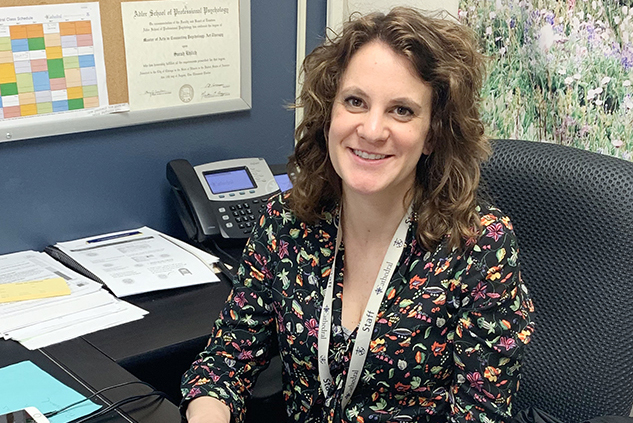Counselor notes strategies for dealing with stress
Covid-19 has put more on the plates of teenagers, Ehlich says
Mental health counselor Mrs. Sarah Ehlich offered advice to students for dealing with grief.
Covid-19 has endlessly tested the limits of healthy mindsets for millions across the world. Mental health therapist Mrs. Sarah Ehlich said, “It’s normal to feel stressed, anxious, frustrated, lonely and disappointed.”
According to the Council on Recovery website, “The prefrontal cortex, the section of the brain responsible for critical thinking and impulse control, is not fully developed until about 25 years old.” This means that when it comes to regulating “sleeping patterns, use of time and technology usage,” teenagers need help and support.
But with the unprecedented circumstances with Covid-19, the Council on Recovery said that adolescents “lost the structure” and had to “navigate on their own.”
Ehlich noted that there are various ways that students can lessen the strain on their mental health. Ehlich said, “If you are feeling stressed, assess what usually helps you to unwind and try those things first. If you have not tried mindfulness or meditation, I do highly recommend using Headspace.” Headspace is a self-help app that offers guided meditations to assist in mental health areas such as anxiety, stress or sleeping patterns.
Another habit that Ehlich encourages is to “practice being in the moment and disconnecting from electronics, even if it’s only for an hour.” Ehlich added that eating healthy, staying hydrated, participating in physical activity and getting a good night’s rest all contribute to improving mental health.
While Ehlich said that “Covid-19 has been stressful and has impacted our lives in many ways,” she recommends “honoring and acknowledging your feelings.” Ehlich said if emotions and feelings are not processed, then it’s impossible to move through them.
Ehlich recommended using an outlet to process emotions. “An outlet could be a close and trusted friend, a therapist or even a journal.” Ehlich also suggested using an emotion wheel. Emotion wheels are tools that allow people to understand, articulate and describe the relationships and intensities of their emotions.
During the Covid-19 epidemic, Ehlich noted the positive options of sticking to a schedule to normalize the not-so-normal days and having a more spontaneous outlook on the day to add variety. “Every individual is different, whether they gravitate toward a schedule or a more spontaneous approach, so assess what you tend to do better with. There is always an in between option where you can start with a schedule, but keep it loose and flexible.
“For example, I scheduled to do my math homework at 6 p.m., but I was really hungry and needed to eat first. So, I adjusted my schedule to eat, take a short break and start homework at 7 p.m.” Ehlich also suggested having some form of buddy system to help keep you accountable and motivated.
Ehlich emphasized that keeping a healthy mindset every day, especially during Covid-19, is extremely important. She said, “A healthy mindset is a balance of navigating and coping with all of your feelings and knowing that they are temporary and ever-changing. There is such a thing as toxic positivity, so it’s OK not to see the bright side all the time.”
Ehlich said If you feel stuck, powerless and as if you are drowning in your emotions, then that is a good indicator that you need some extra support. Ehlich suggested initially to try talking to an adult such as a parent, guardian or counselor. “I do try to send out articles and helpful information. I know checking emails are hit and miss with students, but if you want some support, but aren’t ready to talk to an adult, make sure to search my last name in your inbox or trash and you might find something helpful in there.”
Ehlich added that students are always welcome to reach out to her or a school counselor for helpful resources. She also cited this website.

Ashlynn Bakemeyer is a senior and the co-editor-in-chief of the Megaphone. At Cathedral she is involved in the Best Buddies Club. Outside of school she...







